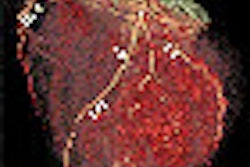
LONDON (Reuters), Apr 27 - Britain widened an investigation on Thursday into the collection of human body parts for scientific tests at nuclear plants, after authorities said more sites may have been involved than initially disclosed.
The government launched a probe last week after discovering that tissue was taken from the bodies of former workers at a state-owned nuclear plant who died between 1962 and 1991.
Unions representing nuclear industry workers said as many as 70 people who worked at the Sellafield nuclear fuel reprocessing plant in northern England and other nuclear facilities may have had bones, organs, or other tissue removed for tests.
The U.K. Atomic Energy Authority (UKAEA) said it had found evidence that tests on autopsy tissue samples had also been carried out at Britain's Atomic Energy Research Establishment at Harwell, in southern England, "at least until the early 1980s."
"There are indications that Harwell also participated in work related to deceased persons who were not employees of the nuclear industry," the UKAEA said in a statement.
The controversy has blown up at a sensitive time for the government which wants to build a new generation of nuclear power plants. Environmental groups oppose the move on safety grounds and because of the problem of disposing of waste.
The UKAEA, a state body dealing with nuclear cleanup and research, said it was carrying out a more detailed search and review which could take several weeks.
Other sites
Harwell, which the UKAEA calls "the birthplace of the U.K. nuclear industry," is being decommissioned. Trade and Industry Secretary Alistair Darling said the UKAEA had told him tests on tissue may have been carried out at other sites as well.
Britain's Atomic Weapons Establishment also believed there could have been additional testing on its employees, he said in a written statement to parliament.
Darling said he had asked senior lawyer Michael Redfern, who is carrying out an independent inquiry into the Sellafield case, to take account of the new revelations. He asked Redfern to look into why the tests were done and whether relatives of the dead had given consent for samples to be taken at Sellafield.
The opposition Conservatives and Liberal Democrats both called the new disclosures disturbing.
"It is now clear that the removal of tissue samples was on a much larger scale than was first thought," Conservative energy spokesman Charles Hendry said in a statement.
"Serious questions will need to be answered as to whether tissue samples were taken without proper consent or authorization and why families were not informed," he said.
British Nuclear Group, which runs Sellafield, said last week the body parts were taken for scientific analysis and had been done in almost all cases on a legally correct basis.
By Adrian Croft
Last Updated: 2007-04-26 11:55:01 -0400 (Reuters Health)
Related Reading
Britain investigates removal of nuclear body parts, April 18, 2007
Copyright © 2007 Reuters Limited. All rights reserved. Republication or redistribution of Reuters content, including by framing or similar means, is expressly prohibited without the prior written consent of Reuters. Reuters shall not be liable for any errors or delays in the content, or for any actions taken in reliance thereon. Reuters and the Reuters sphere logo are registered trademarks and trademarks of the Reuters group of companies around the world.

















